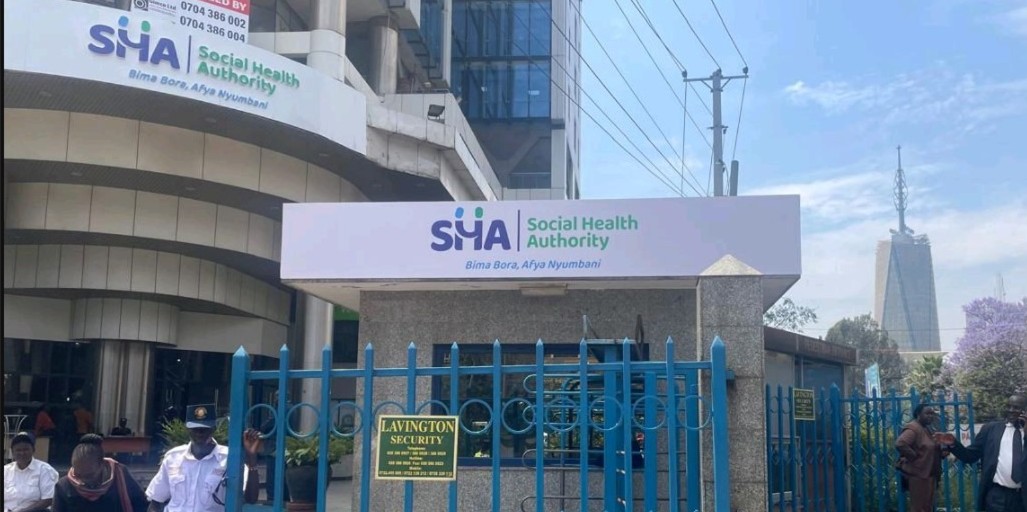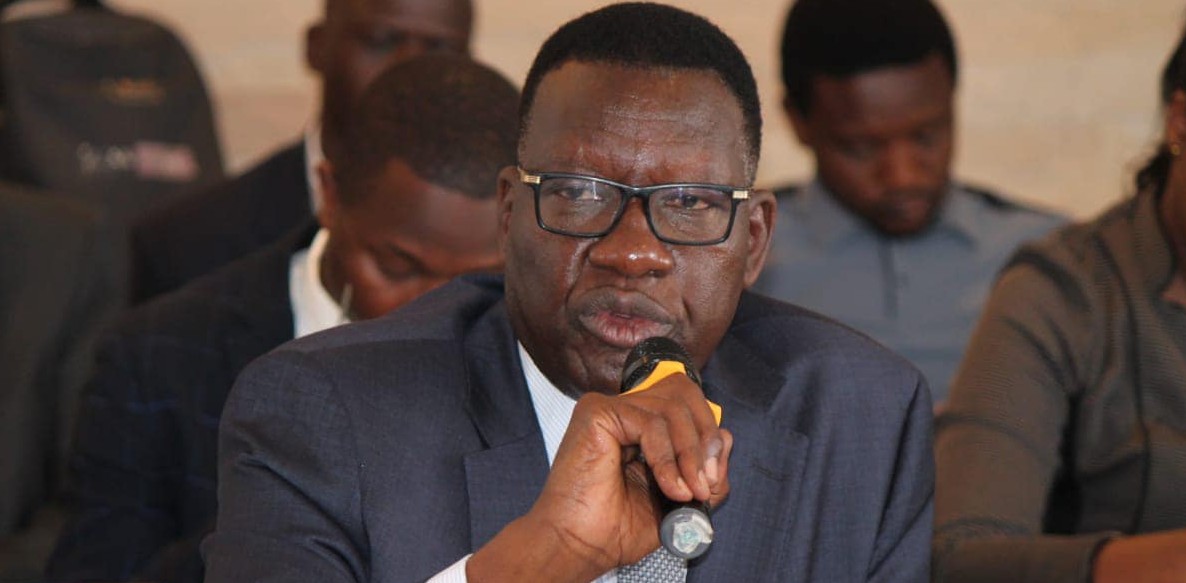Six months after SHIF rollout, Kenyans continue to face challenges in accessing healthcare

While SHA has made promises to improve the healthcare system, including new commitments by Health CS Aden Duale, some experts believe the rollout was rushed and lacked transparency.
Six months after the launch of the Social Health Insurance Fund (SHIF), many Kenyans are still searching for solutions and a functional healthcare system that meets their needs. Confusion and sluggish implementation remain key concerns, leaving citizens frustrated.
According to the Ministry of Health, about 20.8 million Kenyans have been registered under the Social Health Authority (SHA), along with about 5.7 million dependents.
More To Read
However, despite the impressive registration numbers, the government has noted that only about 5 million individuals are actively contributing to the scheme, raising concerns about sustainability and accessibility.
While the Ministry of Health has assured Kenyans that it will review the benefit packages under SHIF, a major concern remains unresolved — coverage for ordinary citizens beyond chronic illness. Many families continue to face hurdles in accessing healthcare despite contributing to the scheme.
Despite the Kenya Kwanza government's campaign promise of a social health insurance system to shield citizens from out-of-pocket payments, there is still no framework in place for means testing. As a result, monthly contributions to SHA remain low.
Lucy Njeete experienced this first-hand when she was urgently called to her son’s school before the term ended. Her child had fallen seriously ill, and she rushed him to the hospital, only to be informed that he was not listed as a dependent under SHA. This came as a shock since her husband’s employer had been remitting funds to SHA on his behalf.
"When you’re called to pick up your sick child from school, it’s already an emergency. My husband has been paying for SHA through his company, but at the hospital, I was told the only name they could see in the system was his," Njeete said.
Njeete’s ordeal did not end at the hospital. Her son was diagnosed with cerebral malaria and was initially given only water and minimal medication.
When she sought treatment through SHIF, she was shocked to learn that their coverage was listed as inactive. Despite her husband’s employer consistently remitting payments to SHA, hospital staff informed her that she needed to make additional contributions to activate the insurance.
"We were told to pay for about three months to activate it, which didn’t make sense since the payments had already been made. We refused, but in the end, we had no choice but to pay Sh6,000 in cash—money we hadn't even planned to spend," she said.
Even after adding all their dependents to the system and making multiple follow-ups, the issue remains unresolved.
"My biggest concern is paying for something that doesn’t work when you actually need it. That’s just not right," she lamented, highlighting the frustrations many Kenyans face under the new health scheme.
From NHIF to a more complex SHIF
Peter Mwangi, a resident of Eastleigh, shared his frustrations with The Eastleigh Voice after being transitioned from NHIF to SHIF. He initially welcomed the change, assuming his monthly contribution had dropped from Sh500 to Sh300. However, he later realised the system was more complex than he had thought.
He noted that the recent government announcement of the option of paying in small instalments had only added to his confusion.
"Does this mean I’ll be paying Sh300, or will I go to the hospital only to be told I still owe more? That needs to be clarified," he said.
He wonders whether the option means that those in the informal sector will now pay a fixed Sh300 or if the contributions will still be calculated at 2.75 per cent.
He also questions what would happen if he chooses not to pay the premium at all.
"I keep hearing about this 2.75 per cent deduction, but I have no idea how the government will calculate it," he said.
Informal workers’ challenge
His biggest challenge is tracking his income to meet monthly contributions.
"Honestly, I can’t even tell how much I make each month. Whatever I earn is used immediately for daily needs. If the process were simpler, it would make a big difference," he said, highlighting the struggles of informal workers trying to adapt to the new health insurance model.
"Isn't the daily payment too expensive in the long run? Paying 30 bob per day adds up to 900 a month, which is way more than the proposed 300. It just doesn’t make sense."
Moses Kuria, a senior advisor with the Council of Economic Advisors to the President, recently announced a new initiative to help Kenyans contribute to SHA by directly deducting payments from their M-Pesa mobile wallets. This move is designed to support individuals who struggle with the full Sh500 monthly contribution, offering a more convenient way to keep up with the program.
Kuria explained that the deductions will be voluntary and will follow the small instalments model, where mobile providers like M-Pesa partner with the government to facilitate the process.
He emphasised that this initiative is aimed at individuals who cannot afford the full contribution, not those who refuse to pay. The small daily deductions, such as Sh20 or Sh30, will help people stay on track with their health insurance payments, even if they are uncertain when they may need healthcare services.
Some of SHA include comprehensive coverage for primary healthcare, emergency treatment, and a focus on preventive, curative, rehabilitative, and palliative care.
SHA provides access to outpatient services, chronic condition management, and essential diagnostic tests.
It covers all maternity-related expenses, including care for underage and indigent mothers.
SHA also offers dialysis, cancer treatment, and specialised surgeries, ensuring affordability with standardised rates.
Additional services include eye care, dental treatments, cancer screenings, and even treatment abroad.
Rushed rollout
While SHA has made promises to improve the healthcare system, including new commitments by Health CS Aden Duale, some experts believe the rollout was rushed and lacked transparency.
Concerns have been raised about unclear payment structures, challenges in accessing services, and whether the system is truly ready to deliver on its promises.
Critics argue that without addressing these issues, SHA may face the same inefficiencies that plagued NHIF, leaving many Kenyans uncertain about their healthcare coverage.
Dr Abraham Rugo, the executive director of Bajeti Hub, said that although Kenya funds a significant portion of its healthcare system, corruption and financial mismanagement continue to hinder service delivery.
Rugo expressed concerns over the Sh104 billion spent on the implementation of the SHA system, arguing that these funds could have been better used to improve existing healthcare infrastructure.
"The issue with NHIF was never the system itself—it was corruption. Instead of addressing the problem, the government dismantled it. If we continue losing nearly 30 per cent of our healthcare budget to corruption, it’s the ordinary citizens who will bear the brunt. We must hold our leaders accountable," Rugo stated.
The ongoing mistrust between the Ministry of Health, service providers and faith-based facilities has intensified, especially regarding the implementation of SHA.
Health experts, unions, and hospital managers have all pointed to the government's decision to rush the rollout as a major cause of the sector’s struggles. Some argue that the funds used to procure a system that is not delivering could have been better spent clearing existing debts and improving healthcare infrastructure. Others suggest that the ministry’s lack of goodwill is a significant factor hindering the proper implementation of SHA, preventing it from reaching its full potential.
Some critics have accused the government of inconsistencies, pointing out that while SHA was meant to protect Kenyans from out-of-pocket expenses, it has failed to adequately fund the primary healthcare fund. This has left many Kenyans vulnerable to catastrophic medical costs.
Top Stories Today


















